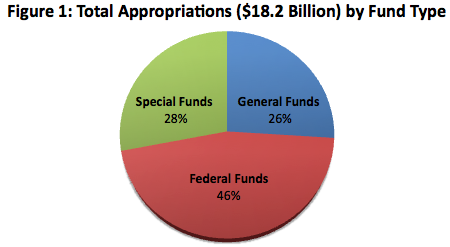The state budget is the collection of laws which determine how our state collects and spends its resources. It is passed each year by the State Legislature and includes spending decisions for each service that the state provides and revenue decisions affecting every state resident.
State services are funded through three primary sources:
General Fund Dollars:
General Funds come from general state tax collections and pay for key services provided by the state, including: K-12 education, Colleges and Universities, and Corrections.
Special Fund Dollars:
Special Funds are established through state statute or constitutional provisions that earmark funds for a specific purpose. Like General Funds, Special Funds must be appropriated annually, but they are generally not subject to the same level of debate.
Federal Fund Dollars:
Federal Fund Dollars are earmarked by the U.S. government for specific state programs. While these fund dollars are appropriated annually by the Mississippi Legislature, they must be spent in keeping with federal rules.
An appropriation is a law that allows the state to spend money. State appropriations pay for various state services such as education, criminal justice, and public health. All appropriations are distributed among agencies with responsibilities for certain services. For example, appropriations for highway construction are allocated to the Department of Transportation while appropriations for education are allocated to the Department of Education. Figure 1 (above) shows the total appropriations for FY 2013 by fund type.
Sound Interesting?
If you would like to read more of this first chapter and the rest of the Nuts and Bolts of the Mississippi Budget you can download the full text here.
Want to Know More?
Keep an eye out for the next blog in this series which will answer the question, “How are our state dollars spent?”






